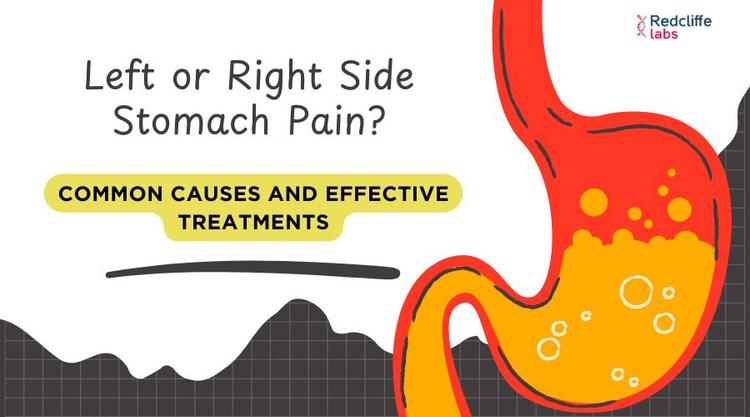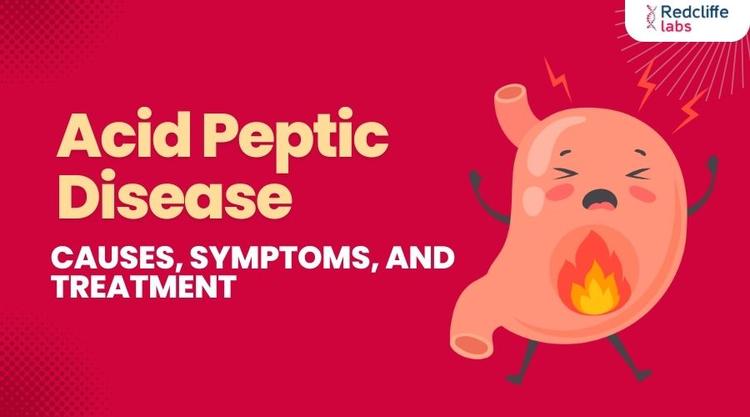The Best Supplements For Gut Health

Medically Reviewed By
Dr Divya Rohra
Written By Muskan Taneja
on Jun 29, 2024
Last Edit Made By Muskan Taneja
on Jul 19, 2025

If you feel bloated or have heartburn, your gut health might be imbalanced.
Gut health ensures the well-being of our body. Our gut is home to 100 trillion microorganisms that help the body break down and absorb nutrients. Gut health reflects what’s happening in our body. If you have symptoms, don’t worry. Here, you can find the best recommendations for supplements to improve your gut health.
What is Gut health?
The gut is the gastrointestinal (GI) system, including the stomach, colon, and intestines. Gut health is determined by the levels and types of bacteria in your digestion. However, there are no clearly defined definitions for gut health. Every researcher and medical professional has a different meaning for it. Some scientists refer to gut health as ‘the second brain.’
Importance of Gut Health
The gut affects overall health in many ways. Doctors say that the gut is connected to the entire body, and if it’s functioning well, it can benefit overall health. GI health also influences mental health.
Research also indicates that the digestive system plays an important role in immune health, sleep, nutrition and metabolism, autoimmune diseases, and diseases like type 2 diabetes and cardiovascular disease.
Also read: https://redcliffelabs.com/myhealth/health/nourish-your-guts-best-foods-for-gut-health/
Best Supplements for Gut Health
Vitamins and supplements are beneficial for several reasons, one of which is improving gut health. Here is a list of natural supplements that help improve overall gut health. Before taking any supplement, consult your doctor to determine the recommended dose that suits your body.
Probiotics
Probiotics are microorganisms that can change the composition of gut microflora. Chief medical officers state that a healthy gut needs balanced probiotics. Probiotics are good for the digestive system. A healthy gut flora can help the GI track down fiber, which boosts nutrient absorption and produces short-chain fatty acids and vitamins. They also assist in the digestion of difficult foods.
Probiotics also help in detecting and destroying harmful bacteria. A healthy gut microbiome is essential for improved nutrient absorption and overall health. A correct proportion of probiotics ensures managing inflammation, better immune systems, and producing neurotransmitters. It directly affects the mood and brain function. If you have signs of gas, bloating, diarrhea, depression, anxiety, or acne, there are chances that you need probiotics.
You can easily find probiotics in yogurt, kimchi, sauerkraut, and kefir, or you can look for probiotic supplements.
Prebiotics
Prebiotics are crucial food for bacteria in the gut, helping them thrive and multiply. They are the type of fiber that the body can’t digest, but the gut microbiome can. Prebiotics can be easily found in fruits and vegetables like chicory root, dandelion greens, garlic, onions, asparagus, and leeks.
You can also take prebiotic supplements if you need more prebiotics. Look at supplements that contain inulin or fructooligosaccharides (FOS). These are the two well-tolerated and effective types of prebiotic fibers.
Apple Cider Vinegar
Apple cider vinegar is a vinegar made from fermented apple juice. It contains pectin, which is considered a prebiotic. It may also have prebiotic bateria. It can be used in salad dressings, marinades, food preservatives, chutneys, and vinaigrette dressings. Although, there is no clinical research in humans that connects apple cider vinegar with benefits for gut health.
Psyllium Husk
Psyllium Husk benefits people who can’t meet their daily fiber intake. In this case, you can take a psyllium husk supplement. Doctors generally recommend it as the best fiber food source. It can create a gel-like mass when it comes into contact with water. It can later help move waste through the intestines and potentially alleviate constipation. It also helps bulk up stool and provides relief from diarrhea.
Psyllium husks are found in oats, barley, nuts, seeds, fruits, and vegetables, such as apples, oranges, and grapefruit.
Vitamin D
Vitamin D deficiency is very common. Sunlight is a direct source of vitamin D. However, people who have nine-to-five jobs do not have time for sunlight. In this case, a vitamin D supplement can help cover the deficiency.
Vitamin D has anti-inflammatory properties that help regulate balance in the gastrointestinal wall. It also helps maintain a healthy gut microbiome. You can get vitamin D from oily fish, liver, egg yolks, fruit and vegetables, and fortified foods like milk and orange juice.
Vitamin C
Vitamin C is a must for the body. It is a water-soluble vitamin, which means it doesn’t last long in the body. Daily intake of vitamin C is needed to store them. You can take it in through foods or supplements. It can increase the body’s production of fatty acids that mediate between the gut and intestinal. Vitamin C can be found in oranges, broccoli, or green leafy vegetables.
Glutamine
Glutamine is a nonessential amino acid that has several benefits for the gut. It supports the gut microbiome and inflammatory responses and promotes the integrity of the gut mucosal wall. It can also help people with irritable bowel syndrome (IBS), i.e., abdominal pain and bloating.
Glutamine helps remove excess ammonia. It is found in milk, yogurt, ricotta cheese, cottage cheese, raw parsley, spinach, and cabbage.
Ginger
For many years, ginger has been used to treat several diseases. Ginger has solutions for every minute to a large problem. It has anti-inflammatory and antioxidant properties. Ginger juice can have a positive impact on gut microbiota.
Ginger decreases pressure on the lower esophageal sphincter, reduces intestinal cramping, and prevents dyspepsia, bloating, and flatulence. It also helps to promote the production of digestive enzymes and reduce nausea. You can consume garlic through ginger tea or juice, honey & ginger, ginger paste, or ginger powder.
Curcumin
Curcumin is mostly found in spice turmeric. It has anti-inflammatory and antioxidant effects. It can cause solutions to complex digestive problems like irritable bowel syndrome (IBS) and inflammatory bowel disease (IBD). Curcumin closes holes in the gut lining for people with leaky gut syndromes. It can help improve mood and cognitive function. Add turmeric to your diet to cure curcumin deficiency. Along with turmeric, you can intake curcumin supplements.
Digestive Enzymes
Digestive enzymes are proteins that help break down food. The pancreas, stomach, and small intestine produce them. In some cases, people don’t make the required digestive enzymes, which results in bloating, gas, and indigestion.
You can fulfill the digestive enzyme deficiency through pineapples, papayas, mangoes, honey, bananas, kimchi, ginger, miso, kiwi, and avocados. These foods can help cure digestive enzyme deficiency.
How To Improve Gut Health?
Lifestyle changes and supplements are beneficial in improving gut health. Consider the following tips that can help improve gut health-
- High-stress levels can be hard on your whole body. To have lower stress levels,
- practice yoga and meditation
- spend time with your family and friends
- limit alcohol intake
- Walk
- spend time with your pet
- Eat your food slowly. It can help reduce digestive imbalance and help maintain a healthy gut.
- Sleep is important for the overall well-being of the human body. Get at least 7-8 hours of sleep. If you have trouble sleeping, consult your doctor; they will guide you.
- Always check your food intolerance. Try eliminating junk food or fatty food items.
- Drink plenty of water. It can increase the diversity of bacteria in the gut. Staying hydrated is also beneficial for overall health and prevents constipation.
The Bottom Line
Gut health looks at the overall well-being of the human body. Supplements can help you improve your gut health and also cure the deficiency. If you have symptoms but aren’t sure, get yourself tested at Redcliffe Labs. We have treated over 50,000 people. Do not delay; book a gut health test with Redcliffe Labs today.
Leave a comment
1 Comments
JAIPRAKASH goenka
Dec 6, 2024 at 12:45 PM.
TOO NICE TO LEARN ABOUT IMPORTANCE OF GUT. SHALL IMPLEMENT THE DIET
Myhealth Team
Dec 6, 2024 at 5:46 PM.
Glad to hear that you found it helpful! Implementing a gut-friendly diet is a great step towards better health. Wishing you success on your wellness journey!



